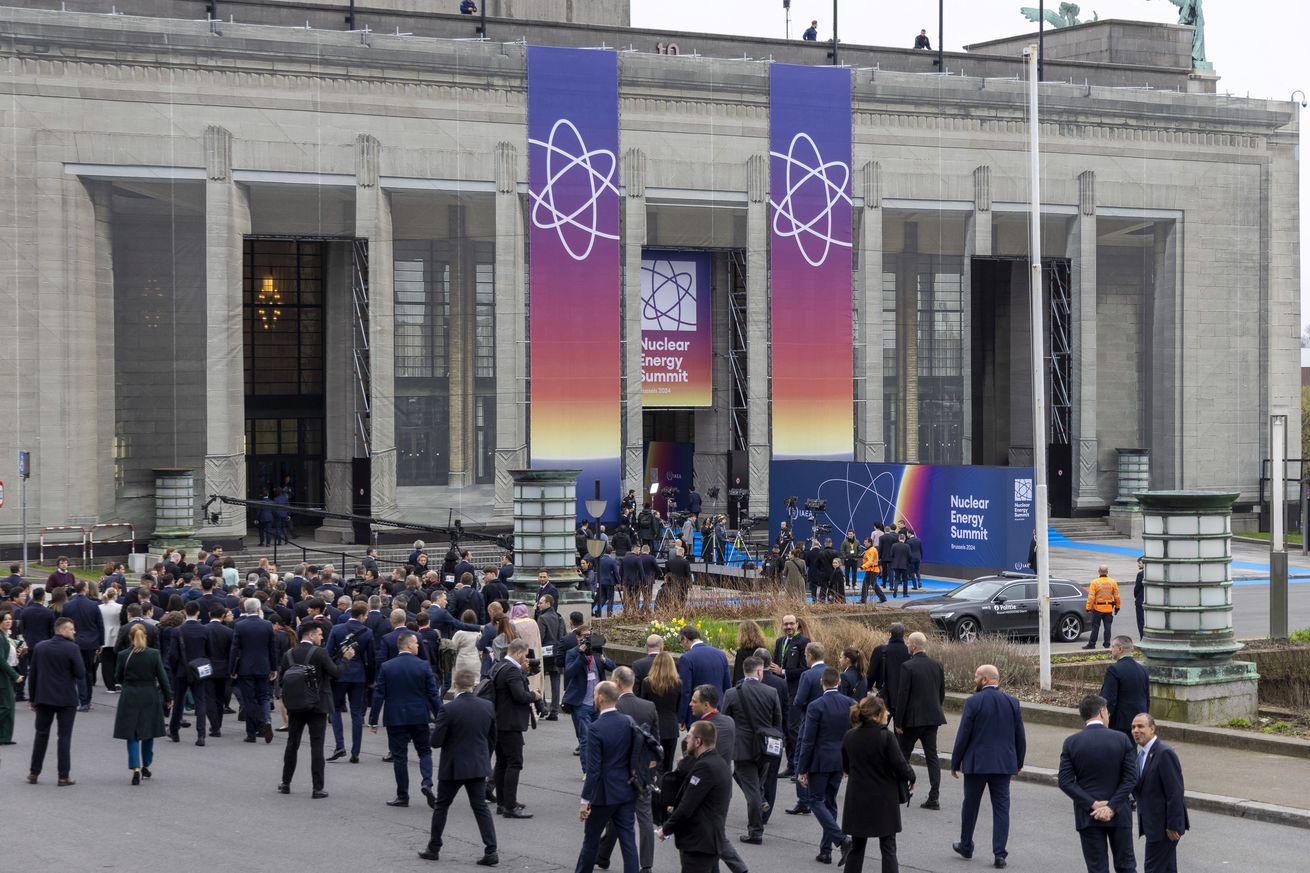Dozens of countries pledge support for nuclear power, despite lingering concerns
2024-03-22 13:10
Science

More than 30 countries have pledged to pursue nuclear energy as one way to meet global climate goals. Even so, nuclear energy is still a controversial energy source that’s bogged down by concerns about radioactive waste, safety, and high costs.
At a nuclear energy summit in Brussels yesterday, the countries pledged “to work to fully unlock the potential of nuclear energy by taking measures such as enabling conditions to support and competitively finance the lifetime extension of existing nuclear reactors, the construction of new nuclear power plants and the early deployment of advanced reactors,” The Associated Press reports. The US, China, Japan, France, Britain, and Saudi Arabia were among the 34 countries to sign the pledge.
It’s a bold statement to support a source of energy over which many governments and environmental groups are deeply divided. Nuclear energy doesn’t generate the greenhouse gas emissions heating up the planet, but the environmental footprint of its supply chain and waste creates other problems. And after decades of missteps, the technology still has to prove whether it can be an affordable, safe alternative to the fossil fuels causing climate change.
Nearly every nation on Earth has committed to fighting climate change as part of the Paris agreement. That requires a transition from fossil fuels to clean energy over the next few decades. Fortunately, renewables like solar and wind energy are already cheaper than coal and gas and are forecast to make up a majority of new electricity sources deployed in coming years. The challenge is in finding backup energy sources for times when winds die down and the sun sets.
Proponents of nuclear energy say it’s the perfect complement to renewables since nuclear reactors are able to generate electricity around the clock. “Nuclear energy is indispensable along with renewable energy ... We must devise strategy to attract further investment which is necessary to enhance the use of nuclear energy,” Japan’s Parliamentary Vice-Minister for Foreign Affairs Komura Masahiro said during the Nuclear Energy Summit held yesterday by the International Atomic Energy Agency (IAEA).
It’s a remarkable turnaround from fears stoked more than a decade ago when an earthquake and tsunami triggered a catastrophic meltdown at the Fukushima Daiichi Nuclear Power Station in Japan. In December, Japan was one of more than 20 countries that agreed to triple renewable energy capacity globally by 2050. The country still plans to prioritize renewable energy, Masahiro said, and “at the same time, Japan will continuously reflect upon the lessons from the accident at the Fukushima Daiichi Nuclear Power Station and ensure that the use of nuclear power places safety as its top priority.”
There’s still skepticism over whether a nuclear renaissance is a good idea. Existing reactors and the radioactive waste they produce still pose risks. IAEA Director General Rafael Mariano Grossi has tried to broker agreements between Russia and Ukraine to prevent a meltdown at Ukraine’s Zaporizhzhya Nuclear Power Plant amid the ongoing war. In the US, tribes and environmental advocates have fought to stop a resurgence of uranium mining that has a legacy of polluting water sources in the past.
At the summit, John Podesta, US senior adviser to the president for clean energy innovation and implementation, touted the construction of the country’s first completely new power plant in decades. The Vogtle Unit 3 reactor in Georgia finally started operating last year, no less than $17 billion over budget after seven years of delays.
Next-generation nuclear reactors are supposed to be easier and cheaper to build. But they haven’t overcome the radioactive waste problem. They’ll require more highly enriched uranium, of which Russia has been the largest supplier. And a key demonstration project using advanced small modular reactors in Utah was canceled in November after costs soared.
Protesters with the environmental group Greenpeace attempted to block roads leading to the Nuclear Energy Summit yesterday, claiming they were able to delay the arrival of some delegates.
“All the evidence shows that nuclear power is too slow to build, too expensive, and it remains highly polluting and dangerous,” Greenpeace EU senior campaigner Lorelei Limousin said. “We are in a climate emergency, so time is precious, and the governments here today are wasting it with nuclear energy fairy tales.”
Source: https://www.theverge.com/2024/3/22/24108679/nuclear-energy-summit-pledge-30-countries